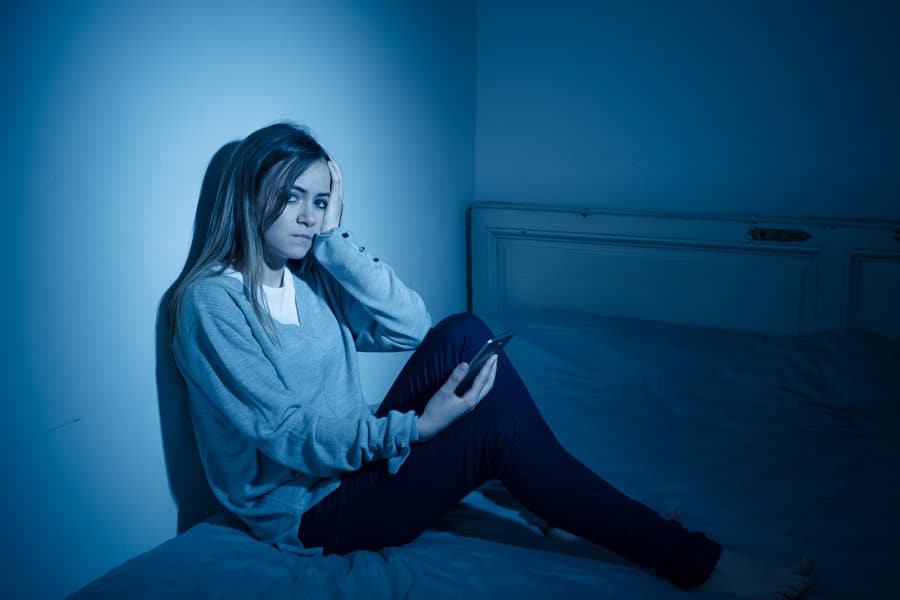The coronavirus pandemic has wreaked havoc across the world and has affected pretty much everything about our lives. Sadly, our sleep patterns have not been the exception. The massive sleep disruption, experienced and described around the world, has been called coronasomina, a portmanteau that reflects the difficulties sleeping many of us are facing right now.
There are various reasons that we are currently dealing with insomnia and other sleep issues. The first reason is that our everyday schedules have shifted and, for many of those who have stayed at home, they are not as tight as they once were. Our bodies rely on a variety of signals and routines to help them know when it’s time for bed and time to rise, and many of these have been gone with the pandemic.
For those currently working from home, there are no clear boundaries between work and leisure. Rather, work might dominate the day and become a constant. People are working all the time. There is also a marked tendency to stay up later and, possibly, to get up later as well. Due to the lack of boundaries, leisure and work become mixed, and people might have a harder time stepping away from their screens. The lack of natural sunlight and the use of gadgets before bed can also push the bedtime further or have a lack of schedule that makes it more difficult to fall asleep every night. More and more number of people are resorting to Revenge Bedtime Procrastination due to this.
The second main reason is the stress and anxiety associated with the pandemic. Many people have faced significant hardship due to personal losses, financial difficulties, having to go to work while risking contagion, and more. At the same time, people have had limited access to many things that usually were there to help them cope – their friends, walks, trips, a fun night out, and so on. This means that the stress levels have increased significantly, and stress can disrupt our sleeping.
So, what can we do about this situation? Here are 15 tips to improve coronasomnia that you can apply right now.
1. Keep a tight schedule
The first step is to try and keep a tight schedule during the weekdays and the weekend. Try to go to bed and rise at roughly the same time every day. This will train your body to fall asleep at this time, and after a few days, you are likely to get sleepy closer to the right moment.
2. Avoid naps
Naps can be very helpful if you are extremely sleep-deprived, but they can also make it harder for you to fall asleep at night. To make sure you get sleepy, it’s better to go without a nap unless it severely compromises your ability to do the work. Don’t make it a regular thing.
3. Seek out sunlight
Sunlight and natural light make a big difference to our bodies. It’s good to get at least some and go outside during the day if you can do it safely. By contrast, dim all the lights in the evening to help your body produce the right chemicals to make you sleepy.
4. Put the devices away
The light from your devices also interferes with your sleep. Put them away at least an hour before going to bed. If that’s not an option, you should dim the light and install an app or a filter that blocks the blue light, which we associate with daylight. There are many free apps for phones, tablets, and laptops for this purpose. You can also go for a book and read in a soft light to relax.
5. Create a wind-down routine
A wind-down routine is a transitional routine that helps your body relax. It’s a good idea to establish a ritual before going to bed that includes things that calm you down. A warm cup of tea, a bath, a meditation, or anything else that doesn’t make you more active is a good solution. You will find that your body will start making you sleepy when you begin your routine, but it’s important to make it distinct from other activities during the day.
6. Don’t linger in bed
Staying in bed when you can’t fall asleep for over half an hour can make you more stressed. It’s better to leave it and go do something else until you start feeling sleepy. Also, avoid eating or watching or doing other things where you sleep to ensure that you strongly associated the bed with sleeping.
7. Keep the room dark
Getting your room as dark as you can might enhance your sleep quality. Even a small light, like a clock, can disturb our rest and make it harder to fall asleep. Ideally, your room should be dark enough for you to be unable to see your hand close to your face when you turn off the lights.
8. Cut down on stimulants
Caffeine takes a while to leave the body. Even when we experience the crash after the energy burst, it is still active. It’s recommended that you don’t drink coffee, caffeinated teas, or chocolate (or consume foods with caffeine) several hours before bed. It’s better to drink it only before noon because it takes about 12 hours to leave the body completely.
9. Set a cut-off time for work
Setting a hard boundary between work and leisure can be more difficult in some jobs, but for many, you can notify your colleagues that you are not going to be available after a certain time and then turn off your notifications. Avoid checking e-mail or replying, or being active unless it is a true emergency, and if it happens every day, it probably isn’t.
10 Distinguish between work and leisure spaces
Not everyone has the luxury of a separate office or even a room they can dedicate entirely to work. But it helps to have dedicated spaces at the least. This means having a desk that you only use for work. Don’t let it invade all your spaces, and especially try to keep it away from the bed and the couch if you are able to.
11. Exercise early during the day
Exercising even for just 15 minutes per day can promote better sleep. However, it’s better to do it in the morning. Avoid strenuous physical activity before bed, as that can make it harder to fall asleep. Working out in the mornings can reduce your stress levels and also help you sleep a lot better.
12. Make time for relaxation
It’s important to do things that can reduce your stress level. Try to find moments during the day when you can meditate, exercise, write, make art, or do any other activities that help you relax and manage stress. Often, when we put it aside during the day, the frustration and anxiety we feel come back with a vengeance when we go to bed and have nothing to distract us. Addressing and reducing stress proactively during the day can be better for our sleep quality.
13. Write down everything that stresses you out
If you lay awake thinking about all the stuff there is to worry about, you might find it helpful to put these thoughts down on paper. That can make it easier to put them aside and relax before going to sleep. You can journal regularly or simply jot down everything that is bothering you at the moment.
14. Stay optimistic and hopeful
With each passing day, we are getting closer to changes in the pandemic. It’s not yet over, and, depending on where you are, there may still be time before everyone is vaccinated and the existing limitations change. However, it will happen. Nothing lasts forever, and focusing on this idea can be comforting. Consider that whatever hardships are happening now, things will change, and it’s not going to last forever. This can be helpful and provide a source of strength.
15. Make sleep a priority
There are hundreds of distractions from social media to Netflix to anything else. It can be quite tempting to spend time having fun and less time sleeping, but we need to accept that sleep should be a priority. When we don’t get enough sleep, it’s not just that we perform on a lower level; it can significantly hurt our health, physically, mentally, and emotionally. Sleep is one of the essential elements of our well-being. If we choose to make it a priority, we might miss out on some time scrolling through social media, but the gains are likely to be much greater. Make sleep a priority, and this will help you make decisions that support your well-being and improve sleep quality.
Coronasomnia is a real problem that is affecting many people. However, there are actual steps you can take to improve your sleep quality today.



